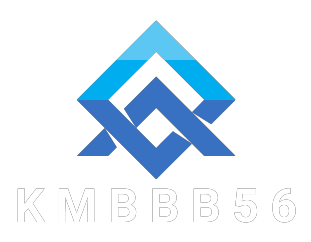Luxembourg has emerged as one of the most attractive destinations for entrepreneurs looking to establish a company in Europe. Known for its political stability, robust economy, and favorable tax policies, this small yet powerful country provides a wealth of opportunities for business formation. Whether you are a start-up founder, an experienced entrepreneur, or an investor looking to expand your horizons, understanding the intricacies of company formation in Luxembourg is essential for navigating this inviting landscape.
As a hub for innovation and finance, Luxembourg offers a unique environment that supports various types of businesses. The streamlined regulatory framework, combined with a multilingual and skilled workforce, makes it an appealing choice for both local and international companies. In this guide, we will explore the essential steps, legal requirements, and key considerations for successfully establishing your business in Luxembourg, empowering you to unlock new opportunities for growth and success.
Understanding Company Types in Luxembourg
Luxembourg offers a diverse range of company types to cater to various business needs and objectives. One of the most popular structures is the Société à Responsabilité Limitée (SARL), which is a private limited liability company. This type of company provides flexibility in management and limits the liability of its shareholders. It requires a minimum share capital, making it an accessible option for small to medium-sized enterprises.
Another significant option is the Société Anonyme (SA), which is a public limited company. This structure is suitable for larger organizations that plan to raise capital through public offerings. The SA requires a higher minimum share capital and is governed by stricter regulations. This makes it a preferred choice for businesses aiming for expansion and attracting significant investment.
For entrepreneurs looking for a more flexible approach, the Société Coopérative (SCo) allows for a cooperative model where members can collaborate for mutual benefit. The SCo is designed for businesses that prioritize collective interests and shared profit. Each of these company types comes with its own set of requirements and advantages, making it essential for prospective business owners to assess their goals and choose the most suitable structure for their operations in Luxembourg.
Step-by-Step Process for Company Formation
To begin the company formation process in Luxembourg, the first step is to choose the appropriate type of business entity that suits your needs. Common options include the Société à Responsabilité Limitée (SARL) and the Société Anonyme (SA). Understanding the differences in liability, capital requirements, and management structure is essential in making the right choice. Additionally, you should conduct a thorough market analysis and draft a business plan to outline your objectives.
Once you have decided on the business structure, the next step is to reserve a unique company name. This can be done through the Luxembourg Business Register, where you must ensure that your chosen name complies with local regulations and is not already in use. After name reservation, you will need to prepare the necessary documentation, including the articles of association, identification documents for all founders, and a deposit confirmation from a local bank.
The final stage involves officially registering your company with the Luxembourg Trade and Companies Register. This requires submitting all prepared documents, along with a registration fee. After registration, you must also acquire a business permit and register for VAT if applicable. Transitioning to a fully operational company includes setting up accounting procedures and fulfilling ongoing compliance obligations.
Legal and Tax Considerations
When considering company formation in Luxembourg, it is essential to navigate the legal landscape effectively. Luxembourg is known for its business-friendly regulations, which provide a stable environment for both local and international businesses. The primary legal structure options include the Société à Responsabilité Limitée (SRL), which is similar to a limited liability company, and the Société Anonyme (SA), akin to a public limited company. Each structure has its own requirements regarding capital, governance, and liability, making it crucial to choose wisely based on your business goals.
Taxation is a significant factor in company formation in Luxembourg. The country boasts one of the lowest corporate tax rates in Europe, which is particularly appealing for startups and established companies alike. Furthermore, Luxembourg offers a range of tax incentives and rulings that can benefit many businesses, including favorable treatment for intellectual property and reduced tax rates on specific types of income. Understanding the nuances of the tax system will enable you to optimize your tax strategy and enhance your company’s profitability. tax-optimized company setup in Luxembourg
Lastly, compliance with the local laws is vital for the successful operation of a company in Luxembourg. This includes adhering to regulations concerning financial reporting, audit requirements, and employment laws. Engaging with a local legal advisor or accounting professional can provide valuable insights into navigating these complexities. By ensuring compliance and understanding legal obligations, businesses can focus on growth and innovation while minimizing risks associated with non-compliance.
